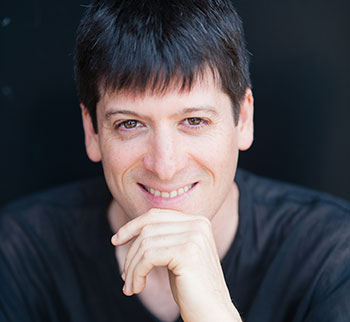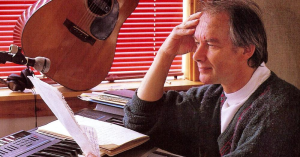A love poem written by Rumi, a 13th-century Persian poet, is the inspiration for an upcoming performance of the Israeli-Iranian Musical Initiative at Toronto’s Aga Khan Museum.
The poem, All Rivers at Once, speaks about the interconnectedness of all of us, said Noam Lemish, the group’s pianist. “The title is very evocative for us – the coming together of different rivers, different streams, and the interconnectedness of these streams.”
Music and friendship brought the nine-member ensemble together. It was founded in Toronto in 2013 by two composers, Iranian Parisa Sabet and Israeli Dan De

utsch. Bridging the political divide that exists between Israelis and Iranians, the initiative aims to create a dialogue for peace through music.
The ensemble’s members became friends despite the fact they grew up in countries that are engaged in diplomatic hostility. “Here in Toronto, we are friends,” said Lemish, who’s an Israeli-American. “We hope we’re setting an example of what’s possible. We benefit from spending time together and sharing our music and cultures.”
He said music does have the potential to bring people with different political viewpoints together, but it would be naive to think that putting on concerts will broker peace in the Middle East. The ensemble is modeling a vision of what they would like the world to look like, one in which there is coexistence and different cultures are treasured, he said.
READ: CHILDREN WITH DISABILITIES PARTICIPATE IN FASHION SHOW
Musically, the initiative transcends boundaries and in the process it has created a fresh, new sound, Lemish said. “We’re bringing together jazz, classical music, traditional music from Iran, traditional Jewish music, Israeli popular music. It’s a concert that integrates these styles and transcends these styles to create something unique.”
The group’s arrangements are jazz-like, said Lemish, who’s also in a quartet with Israeli jazz musician Amos Hoffman, the initiative’s guitar and oud player. “The rhythmic vocabulary that the music is going to evoke is rooted in the traditional rhythms that come from whatever regions we’re performing the music from, but also utilizing rhythms that come from the world of jazz music,” Lemish said.
The ensemble’s distinctive sound is created by an innovative blend of Western and Middle Eastern instruments. Musicians on piano, bass, drums, guitar, clarinet and saxophone perform beside Pedram Khavarzamini on tombak, a Persian hand drum; Saeed Kamjoo on kamancheh, an Iranian bowed string instrument; Kianoush Khalilian on ney, a Persian flute, and Hoffman on oud, a pear-shaped, lute-type string instrument. Aviva Chernick’s otherwordly vocals add an additional musical layer to the group’s complex sound.
At the concert, which the Aga Khan Museum is presenting in partnership with the Ashkenaz Festival, the group will be performing songs by Morteza Neydavoud, a Jewish-Iranian composer whose music is loved in Iran. Neydavoud, who was born in Iran in 1900, left the country in 1980 and died in San Francisco, Calif., in 1990. “He’s an important figure in terms of the preservation of traditional Iranian music – not just Jewish Iranian music,” Lemish said.
The concert will feature Israeli material and Jewish songs from the Middle East and Central Asia, including a Jewish wedding song from Azerbaijan. The musicians will also perform some Ladino pieces that Chernick taught them. Studying and singing Ladino music is one of her passions.







